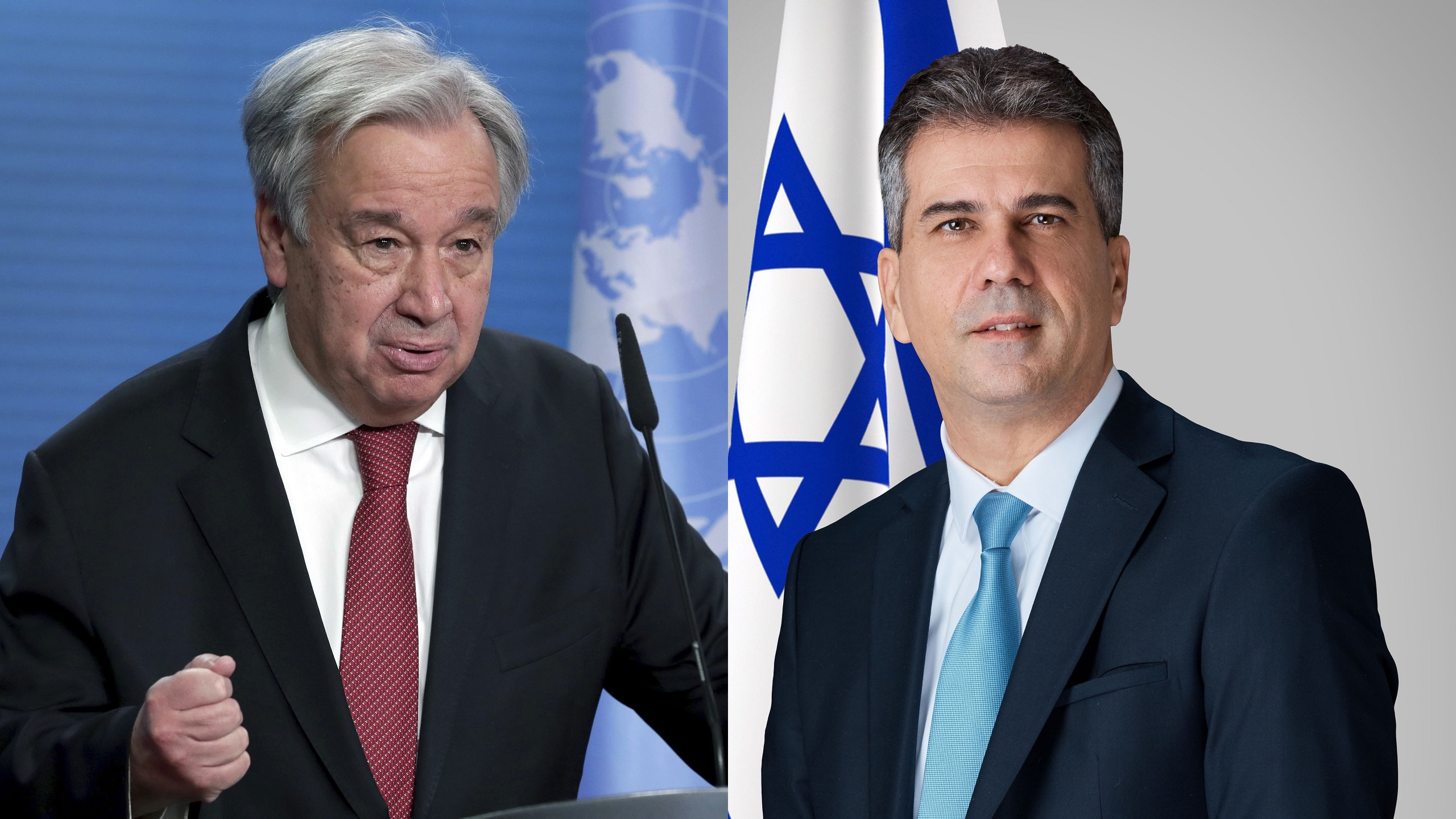Article 99: What Is It, Why Did the UN Chief Request To Activate It, and Why Did Israel Strongly Object?
In a bold and rare move, UN Secretary-General António Guterres has invoked Article 99 of the UN Charter to expedite action by the UN Security Council on the ongoing Israel-Hamas war. This provision, dormant for decades, empowers the secretary-general to highlight issues posing threats to international peace and security.
This unprecedented request was prompted by the UN Security Council’s inability to pass a resolution calling for an immediate truce and lasting cease-fire. Amid rising Palestinian fatalities due to the Israeli ground offensive in Gaza, and growing concerns about the conflict spreading to nearby countries, the secretary-general’s intervention reflects what many see as an urgent need for swift and decisive action. But it has also sparked a strong backlash from Israel and its supporters, who view the calls for a cease-fire as protective of a murderous terrorist group whose existence on Israel’s borders must not tolerated.
What is Article 99?
Often considered preventative, Article 99 plays a role in elevating global awareness of escalating crises. In his letter to the president of the Security Council, Guterres highlighted the potentially irreversible regional implications of the Israel-Hamas conflict and the pressing need to avert a wider humanitarian disaster.
Former UN Secretary-General Kofi Annan stressed the importance of political action during crises, voicing support for Article 99. UN Secretary-General Dag Hammarskjöld echoed this view, considering Article 99 as “more important than any other.”
The historical use of Article 99 underscores its importance in tackling complex crises. In 1960, Hammarskjöld invoked the article in response to escalating violence in Congo, resulting in a 20,000-member UN peacekeeping force deployment. However, this intervention struggled to maintain order as the Cold War engulfed the region.
In a more recent instance, Secretary-General Javier Pérez de Cuéllar invoked Article 99 in 1989, during the concluding phases of the Lebanese civil war. The highly complex conflict involved an Israeli invasion and occupation of southern Lebanon, with the potential to draw in France and the US.
Although sparingly used, Article 99’s invocation has historically been instrumental in mobilizing UN actions during crises. UN critics cite examples, such as the Rwandan genocide, where not invoking Article 99 is viewed as a missed chance to avert a tragedy.
Article 99, Gaza, and Israel
Guterres’ recent invocation of Article 99 highlights the grave situation in Gaza, where a humanitarian crisis looms. In his letter, the secretary-general warns about the potential for epidemic diseases to spread, the collapse of health facilities in Gaza, and the displacement of over 80% of its population.
Israel has strongly objected to Guterres’ move. Israeli Foreign Minister Eli Cohen accused Guterres of supporting Hamas, labeling his tenure as “a danger to world peace.” Cohen’s fiery reaction follows Guterres’ call for an immediate cease-fire in the conflict, which erupted on October 7, when around 3,000 Hamas terrorists invaded communities in southern Israel. The attack included the killing of around 1,200 Israelis, most of them civilians, often accompanied by brutal acts of torture and sexual violence, and the taking of about 250 Israelis and foreign nationals as hostages.
Guterres urged the international community to use its influence to de-escalate the crisis. In response, Cohen and Israeli Ambassador to the UN Gilad Erdan have called for Guterres’ resignation, criticizing his stance as biased against Israel and supportive of Hamas. Erdan accused Guterres of reaching a “new moral low,” focusing on pressuring Israel while ignoring Hamas’ responsibility for the situation.
Erdan’s and Cohen’s strong reactions underscore Israel’s firm position against Hamas, with vows to continue their military efforts to dismantle the group. They view Guterres’ invocation of Article 99 to call for a cease-fire as a move that undermines Israel’s security and legitimizes Hamas’ actions, demanding a UN leader who supports their fight against terror.
The invocation may have broader implications, with the United Arab Emirates presenting a draft resolution to the UN Security Council based on Guterres’ letter. The draft resolution calls for an “immediate humanitarian cease-fire” in Gaza. Yet, gaining unanimous support from the council’s members is uncertain, given the US and Britain’s expressed support for Israel’s actions.


